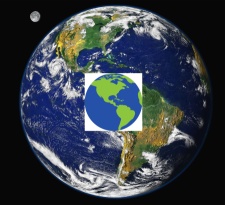The Ultimate (and Hastening) End of the USA
by Steve Kindle

The recent assault on our nation’s Capitol building with the intent to overturn a free and undisputed victory reveals more than a growing dissatisfaction with the American experiment. It also presages the end of our Republic. The rise and fall of civilizations is a cycle that recurs throughout history. Historians from Gibbon (Rome) to Toynbee (26 civilizations) to Spengler (the West) have wrestled with the causes and gave us much to think about. Most recently, Jerod Diamond entered the discussion with his book, Collapse: How Societies Choose to Fail or Succeed. I have been impressed with his ability to tackle massive questions since he burst on to the world scene with Guns, Germs, and Steel. Wikipedia summarizes it. “He proposes five interconnected causes of collapse that may reinforce each other: non-sustainable exploitation of resources, climate changes, diminishing support from friendly societies, hostile neighbors, and inappropriate attitudes for change.” This seems to me to present a clear warning of a present danger to the United States of America. We will look at each of these and at the end of the last category, I will add my theory of why America is failing and why it is almost impossible to avoid collapse.
Non-sustainable exploitation of resources
Beginning with the Industrial Revolution of the 19th century, the developed world started on an increasingly avaricious path of acquiring all that is possible to get from the earth. This was often at the expense of the undeveloped nations and indigenous peoples. According to Scientific American, “the average American will drain as many resources as 35 natives of India and consume 53 times more goods and services than someone from China.” And “between 1900 and 1989 U.S. population tripled while its use of raw materials grew by a factor of 17.” To top it off, the National Geographic’s Greendex study “found that American consumers rank last of 17 countries surveyed in regard to sustainable behavior.” The bottom line, according to the Living Planet, is “humans are using 30% more resources than the Earth can replenish each year, which is leading to deforestation, degraded soils, polluted air and water, and dramatic declines in numbers of fish and other species.
The USA has 5% of the world’s population yet consumes 30% of its resources. What are the chances that Americans will 1) understand the problem, and 2) decided to do something about it? The reality is that for the rest of the world to enjoy our standard of living we would need a planet 5 times the size of Earth.

Given that this is an impossible solution, a serious downgrading of our consumption is also not foreseeable. Overconsumption and climate change are immediate threats to Americans but not immediately discernible. This generation will be impacted over time and will eventually fully catch up to our profligate ways.
Climate Changes
A UN report came out just today (8/8/21), dubbed a “code red for humanity,” revealing that the half-percent rise in the earth’s temperature is now irreversible. This means we will experience longer seasons of high heat and shorter seasons of cold temperatures. Dwindling governmental resources to cope with the coming devastations will create serious social unrest that autocrats will undoubtedly turn to their advantage.
There is universal recognition among climate scientists that the main cause of climate change is burning fossil fuels such as oil, gas, and coal. Additional causes are deforestation and hyper-farming methods (big Agri-business). When burnt, fossil fuels release carbon dioxide into the air, causing the planet to heat up. There is also a consensus that there is only a 10-year window to reduce fossil fuel use to an acceptable level or there is no way to avoid catastrophic results that will change life on earth as we know it. The hold the oil and gas lobbies have on Congress, the myopic focus businesses have on profits for the next quarter, and the reluctance of Americans to embrace necessary lifestyle changes all point to a world of shortages in the coming decades. Shortages create opportunities for despots to rise to power.
One side effect of governmental ineffectiveness in this and other areas is that capitalism is losing its grip on Americans. A 2018 Gallup poll found that the majority of Americans ages 18-29—no matter their party affiliation—had a positive view of socialism. Americans in that age group were also far less likely than other age groups to view capitalism favorably. Gen Z and Millennials find capitalism unable to alleviate but actually cause social inequities. This is fertile ground for a massive shift away from our present form of government during times of unrest.
Diminishing support from friendly societies
In the world of realpolitik, there are no allies, only shared interests. As interests change, so do allegiances. One of the questions that surfaced immediately following the September 11, 2001 attacks was, “Why is America hated?” The average American sees our nation as the great benefactor of the world. Much of the world sees us much differently. As noted above, our 5% of the world’s population has devoured much of the world’s resources leaving impoverished nations, well, impoverished. We back oppressive regimes that repel democratic efforts leaving people wary of American “ideals.” The
“ugly American” is not thought of only in Vietnam. To see how quickly world opinion can change, our Western allies, who chafed during the Trump years, heaved a great sigh of relief when President Trump left office. Yet, they remain worried that another like him is possible to surface. In a coming world of tight resources, former allies will adopt the regrettable “our nation first” attitude and recede from cooperating except where absolutely necessary. The reality is that America is so integrated with the world economy that we cannot go it alone. A sure lesson from history is that tight resources (land, oil, people) inevitably lead to war. One more arrow in the quiver of America’s possible demise.
Hostile neighbors
Mexico, Central America, and parts of South America are turning away from democratic ideals.
Inappropriate attitudes for change
Human nature naturally opposes change. Homeostasis is the most comfortable existence. To truly deal with the problems confronting America (and the world), profound changes are required in how we use energy, deal with economic inequities, and adjust to a world of shortages. Any one of these puts a government into a stress test and complicates its survival.
MY TAKE: Inherent in the American psyche, due to the strong emphasis placed on individual freedom, the highest ideal is freedom of choice. This has complicated any significant advances toward community awareness.
Remember the backlash Hillary Clinton received when she titled her book, “It Takes a Village”? Consequently, many Americans resent being told to wear masks during our current Covid epidemic. Mask mandates are considered an abridgment of freedom. Lost is the awareness that my freedom to get sick means that I will likely pass this on to others, thereby inhibiting their freedom to remain healthy.
When asked why gun owners need an AK-47, the reply is “What business is it of yours to tell me what I need or don’t need?” When Ralph Nadar’s “Unsafe at Any Speed” demonstrated the need for safety standards in automobile production, seatbelts were mandated for all drivers and passengers. I may be free to ignore them, but I am not free to jeopardize my passengers or other drivers. Whether mask, guns, or driver safety is involved, keeping the community in mind is mandatory, yet willingly set aside for the sake of individual freedom.
The image of the so-called “self-made man” is patently wrong-headed. There are no self-made men or women. The education we all receive is provided by others. Even Lincoln educated himself from the books of others. Businesses thrive because of the infrastructure provided by others (buildings, streets, roads, internet, advertising media, etc.). The tragedy is that in overlooking the great network of relationships that make success possible, we ignore the very people and institutions that make it possible. “Pride cometh before a fall.” Indeed.
This priority of the individual over the community is the greatest barrier to our nation’s ability to sustain itself over the coming tests of its durability.
There is not enough time or a broad enough interest in creating a community that lives for the sake of each other. Even in the church, where community building should be the norm, we are a collection of individuals. Had the church been modeling true community all along, we might not be in this existential crisis.
Let us not content ourselves that God superintends our fate. That God favors the USA is a narcissistic myth. It is possible that after the dust settles we may find that our need for one another becomes paramount. In that case, it will be possible to start a new ethic leading to a better ethos: life lived for the sake of one another.
Do I believe America will survive the inevitable future that will stress our institutions to a possible breaking point? If I see any reason for optimism it is this: Americans are getting tired of selfishness in all its forms. This can lead to deeper involvement with one another which carries with it the potential for true community. But let hope not become a substitute for reaching out to one another. A new day is dawning; whether it will be worth living in remains to be seen.


